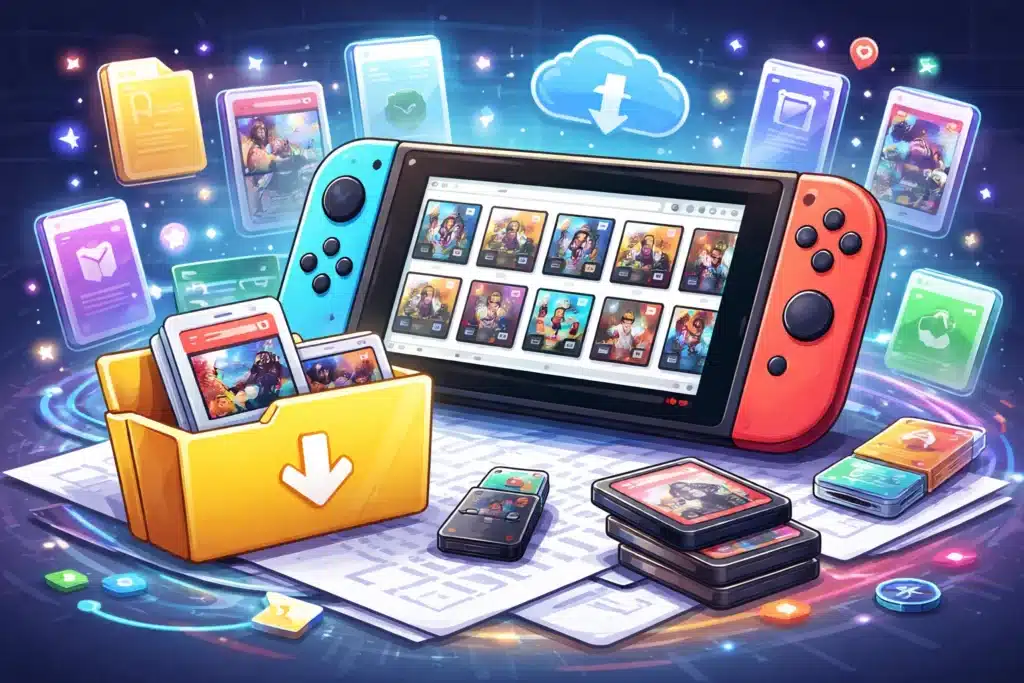What to Expect from a Game Testing Service Provider: A Complete Guide

Launching a successful game requires more than just brilliant design, solid code, and captivating visuals. No matter how polished a game may seem during development, real-world usage can reveal bugs, performance issues, and user experience flaws that could derail even the most promising release.
That’s why partnering with a reliable game testing service provider is critical to delivering a stable, smooth, and enjoyable game.
But what exactly does a game testing provider do? How do they integrate into your team? What kind of testing should you expect? In this complete guide, we’ll break down what to expect when working with a game QA partner and how they add value across the entire development lifecycle.
Why Work with a Game Testing Service Provider?
An experienced game QA provider offers specialized expertise, resources, and tools to test your game thoroughly across devices, platforms, and user scenarios. Their primary goal? To identify bugs, improve performance, and elevate the overall user experience before launch.
You get:
- A dedicated QA team with gaming experience
- Access to a wide range of real testing devices
- Structured testing workflows
- Detailed bug reporting
- Objective feedback from a player’s perspective
This allows your internal team to focus on what they do best—building great games—while the QA provider handles the quality control.
1. Initial Onboarding and Test Planning
The process typically begins with onboarding and test planning. This includes:
- A project briefing to understand your game’s genre, target platforms, audience, and goals
- Reviewing design documents, gameplay mechanics, and tech stack
- Identifying high-risk areas (e.g., multiplayer, monetization, device compatibility)
- Creating a customized test plan tailored to your game’s complexity and release timeline
A good provider works with your team, not just for it. Communication and collaboration are key from the start.
2. Access to Skilled QA Testers
A professional game testing service provider gives you access to experienced QA testers who:
- Know how to play-test games effectively
- Understand game mechanics and player psychology
- Can detect subtle bugs or gameplay inconsistencies
- Are familiar with mobile, PC, and console platforms
These aren’t general software testers—they’re gaming specialists who can think like real players.
3. Multi-Type Testing Services
Expect your provider to offer a wide range of testing services, such as:
✅ Functional Testing
Checks if all features work as intended. Testers follow scenarios like:
- Menu and UI navigation
- Gameplay logic
- Achievement tracking
- Multiplayer functionality
- In-app purchases
📱 Compatibility Testing
Ensures your game runs smoothly across:
- Different operating systems (iOS, Android, Windows, etc.)
- Device models (flagship to budget)
- Screen sizes and resolutions
- Graphics settings and chipsets
⚙️ Performance Testing
Measures:
- Frame rates (FPS)
- Loading times
- Battery consumption
- Memory and CPU usage
- Crash frequency
🧠 Usability Testing
Focuses on the user experience by evaluating:
- Intuitiveness of UI/UX
- Clarity of tutorials
- Control responsiveness
- Player onboarding and engagement
🌐 Network and Multiplayer Testing
For online games, providers simulate different conditions like:
- Packet loss
- Latency spikes
- Disconnections
- Sync issues in multiplayer environments
🌍 Localization and Compliance Testing
Verifies:
- Translations across languages
- Cultural sensitivity
- Adherence to platform guidelines (Google Play, App Store, Steam, etc.)
4. Use of Real Devices for Mobile and PC Testing
A serious testing partner will avoid relying solely on emulators. Instead, they’ll use real smartphones, tablets, and PCs to ensure accurate, real-world results.
Testing on physical devices allows them to catch issues like:
- Overheating on certain chipsets
- Touch sensitivity differences
- UI glitches specific to certain screen resolutions
- Device-specific performance drops
This is essential for mobile games targeting a global user base with hundreds of Android variants.
5. Structured Bug Reporting and Tracking
Expect thorough bug reports that include:
- Reproduction steps
- Severity (Critical, Major, Minor)
- Platform and device info
- Screenshots or videos
- Expected vs actual behavior
- Suggested fixes or notes for developers
Most testing providers also integrate with common tools like:
- Jira
- Trello
- TestRail
- Asana
- Custom bug tracking systems
This ensures smooth communication between your development and QA teams.
6. Regression Testing and Update Support
When you fix bugs or push updates, you’ll need regression testing. A reliable game testing service provider will:
- Re-test previously working features
- Validate that bug fixes didn’t break new areas
- Test new builds quickly and efficiently
This is especially important for mobile games with frequent updates and seasonal content.
7. Flexible Engagement Models
Top-tier providers offer flexible collaboration options:
- Full-cycle testing (from alpha to post-launch support)
- Short-term engagements for pre-release polish
- Dedicated QA teams that work as an extension of your studio
- On-demand testing for patches, new features, or live events
This lets you scale QA based on your production phase and budget.
8. Continuous UX Feedback
Beyond just finding bugs, a game testing service provider delivers valuable UX insights. Their testers can highlight:
- Confusing onboarding
- Unbalanced difficulty spikes
- Frustrating navigation or menu layouts
- Lack of feedback in key actions (e.g., hit response, rewards)
This helps your design team make UX improvements that boost player retention, engagement, and monetization.
9. Security and Compliance
For multiplayer and online games, providers also help test:
- Data encryption and secure logins
- Anti-cheat mechanisms
- Compliance with privacy laws (GDPR, COPPA)
- Platform requirements (Google, Apple, Steam, Xbox)
This helps avoid rejections, security risks, and reputational damage.
10. Post-Launch Support
QA doesn’t stop at launch. The right partner stays with you during:
- Day-one patches
- Feature updates
- LiveOps events
- Seasonal content drops
- Community feedback-driven changes
This ensures your game stays stable, competitive, and enjoyable long after release.
Why Choose SnoopGame as Your Game Testing Service Provider?
At SnoopGame, we’ve helped studios around the world deliver bug-free, high-performance games across mobile, PC, and console. Our services include:
- 600+ real testing devices
- Experienced QA teams with genre-specific expertise
- Fast onboarding and transparent reporting
- Seamless integration with your existing development tools
From indie hits to large-scale multiplayer games, we’ve tested them all—and helped teams launch with confidence.
Final Thoughts
Partnering with a trusted game testing service provider can be one of the smartest decisions you make during game development. The right provider does more than find bugs—they help you craft a game that performs well, delights users, and earns positive reviews from day one.
With comprehensive testing, player-centric feedback, and deep platform knowledge, your QA partner becomes a vital extension of your team.
Whether you’re launching your first game or your fiftieth, don’t take chances with quality. Let professionals handle the testing—so you can focus on building the next big hit.

Curtain Dry Cleaning and Leather Sofa Cleaning – Reliable Care by Duo Nini

Brian Ferdinand of EverForward Trading Joins Forbes Finance Council, Expanding His Voice on Markets and Risk

Get Any Company Objectives or News of rox.com

Our First Winter Trip to Aspen — And the Decision That Made It Stress-Free

What to Expect During Your First NDIS Support Visit

Allysplay.com: Clear Explanation of What the Platform Represents

Nxbrew: What It Is, How It Works, and Why People Search for It

Harmonicode Games: How Music, Rhythm, and Logic Create a New Way to Play








